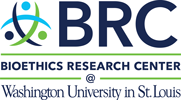Identifying and Exploring Solutions to the Ethical Challenges of ApoL1 Testing of Donors with Recent African Ancestry Through Mixed Methods Research with Stakeholders
GRANT
1R01MD014161-01
NIMHD, R01
08/01/2019 – 02/28/2022
KEY PERSONNEL
- James M. DuBois, DSc, PhD
Principal Investigator - Tristan McIntosh, PhD
Co-Investigator - Sumit Mohan, MD, MPH
Co-Investigator - Ana Iltis, PhD
Co-Investigator - Deirdre Sawinski, MD
Co-Investigator - Heidi Walsh, MPH, CHES
Project Manager
DESCRIPTION
Blacks in the United States have a higher incidence of end-stage kidney disease than the general population; much, but not all, of this excess risk is attributed to variants in the ApoL1 gene. Individuals with 2 high risk variants—found almost exclusively in people of West African ancestry—have a 20% chance of developing kidney disease. Black living donors (LD) have a higher risk of developing end-stage kidney disease after donation, and kidney transplants from Black deceased donors (DD) have diminished allograft survival compared to kidneys from non-Black donors.
The ApoL1 Long-term Kidney Transplantation Outcomes (APOLLO) Network was established to address the role of ApoL1 testing in kidney transplantation. The APOLLO Network will genotype approximately 700 LD and 1600 DD while tracking outcomes for LD and recipients. All participants will have the option to receive their ApoL1 test results after enrollment ends. While, the APOLLO Network has the potential to increase understanding of kidney health disparities among Blacks and improve transplantation outcomes, the introduction of ApoL1 testing risks stigmatizing Black organ donors, reducing the number of Black LD, and worsening disparities. It also raises a series of ethical questions about clinical practices: who to test, how to use test results, and with whom to share results. The APOLLO Network provides a unique opportunity to study ethical issues surrounding genetic testing that targets Blacks in the high-stakes clinical setting of organ transplantation. In this 3-year ancillary project we will explore the factors that influence participants’ views on ApoL1 testing clinical practices and obtain an informed consensus among diverse stakeholder groups on clinical practices. We will also explore participants’ experiences with receiving Apol1 testing results.
PUBLICATIONS
Mohan, S., Iltis, A. S., Sawinski, D., & DuBois, J. M. (2019) APOL1 Genetic Testing in Living Kidney Transplant Donors. American Journal of Kidney Diseases. Advance online publication. doi: 10.1053/j.ajkd.2019.02.007.
McIntosh, T., Mohan, S., Sawinski, D., Iltis, A., & DuBois, J. M. (2020). Variation of ApoL1 testing practices for living kidney donors. Progress in transplantation, 30(1), 22–28. https://doi.org/10.1177/1526924819892917
Nestor, J. G., Li, A. J., King, K. L., Husain, S. A., McIntosh, T. J., Sawinski, D., Iltis, A. S., Goodman, M. S., Walsh, H. A., DuBois, J. M., & Mohan, S. (2022). Impact of education on APOL1 testing attitudes among prospective living kidney donors. Clinical transplantation, 36(1), e14516. https://doi.org/10.1111/ctr.14516
Iltis, A. S., Rolf, L., Yaeger, L., Goodman, M. S., & DuBois, J. M. (2023). Attitudes and beliefs regarding race-targeted genetic testing of Black people: A systematic review. Journal of Genetic Counseling. https://doi.org/10.1002/jgc4.1653
McIntosh T, Walsh H, Baldwin K, Iltis A, Mohan S, Sawinski D, Goodman M, DuBois JM. (2024). Evaluating ApoL1 Genetic Testing Policy Options for Transplant Centers: A Delphi Consensus Panel Project with Stakeholders. Clinical Journal of the American Society of Nephrology: CJASN. 19(4):494-502. https://doi.org/10.2215/CJN.0000000000000397

